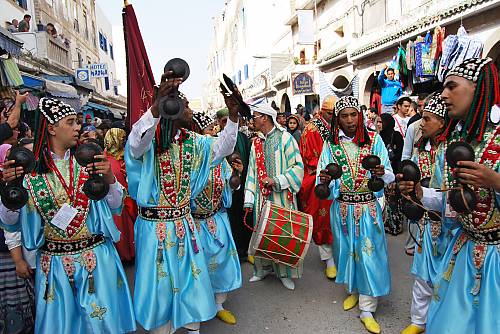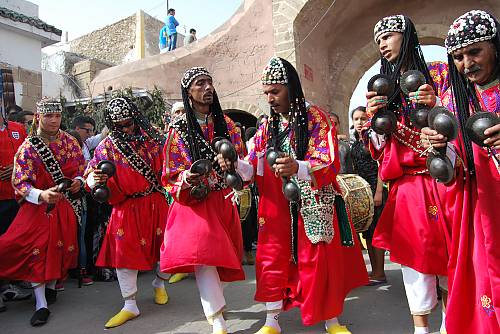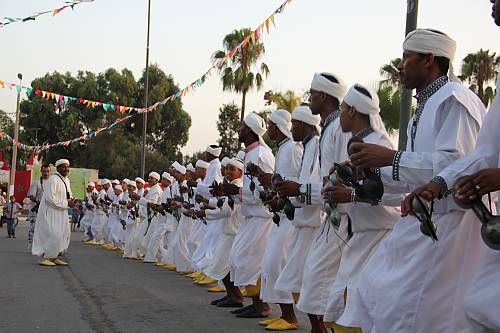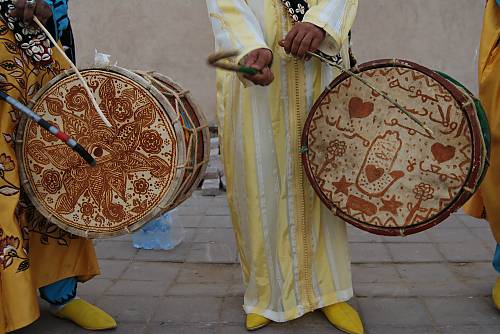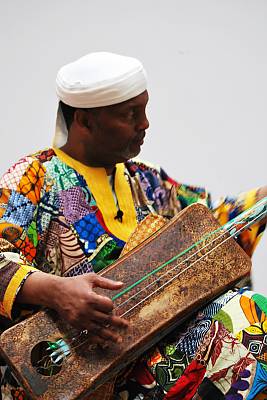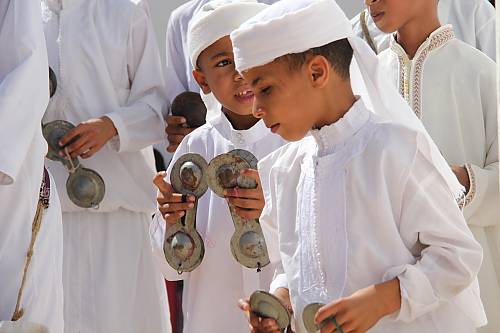Gnawa
Inscribed in 2019 (14.COM) on the Representative List of the Intangible Cultural Heritage of Humanity
Gnawa refers to a set of musical events, performances, fraternal practices and therapeutic rituals mixing the secular with the sacred. Gnawa is first and foremost a Sufi brotherhood music combined with lyrics with a generally religious content, invoking ancestors and spirits. Originally practised by groups and individuals from slavery and the slave trade dating back to at least the 16th century, Gnawa culture is now considered as part of Morocco’s multifaceted culture and identity. The Gnawa, especially in the city, practise a therapeutic possession ritual through all-night rhythm and trance ceremonies combining ancestral African practices, Arab-Muslim influences and native Berber cultural performances. The Gnawa in rural areas organize communal meals offered to marabout saints. Some Gnawa in urban areas use a stringed musical instrument and castanets, while those in rural areas use large drums and castanets. Colourful, embroidered costumes are worn in the city, while white attire with accessories characterize rural practices. The number of fraternal groups and master musicians is constantly growing in Morocco’s villages and major cities, and Gnawa groups – organized into associations – hold local, regional, national and international festivals year-round. This allows young people to learn about both the lyrics and musical instruments as well as practices and rituals related to Gnawa culture generally.



